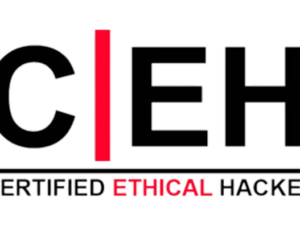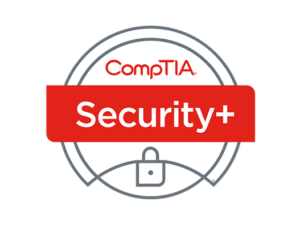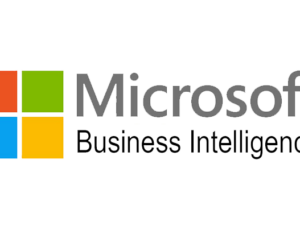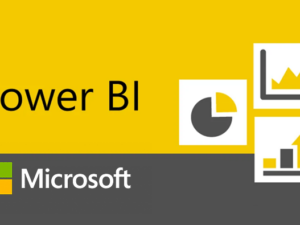Salesforce Platform Developer 1 Certification Training will help participants to develop and deploy basic business logic and user interfaces using the programmatic capabilities of the Force.com Platform.
Salesforce Platform Developer I (Apex and Visualforce)
- Description
- Curriculum
- FAQ
- Reviews
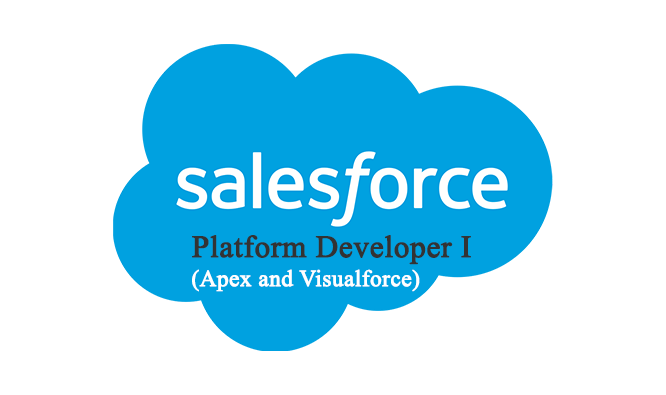
- Create and modify objects using the declarative interface
- Write business logic customizations using Apex triggers and classes with the help of SOQL and DML.
- Design programmatic solutions that take advantage of declarative customizations
- Create Apex Triggers within the basics of the Save Order of Execution
- Design programs on a multi-tenant platform
- Write Visualforce markup and code to customize the user interface
- Use the built-in testing framework to test Apex and Visualforce code
Salesforce Certification Training will make you an expert in writing business logic and customizing applications programmatically on the Force.com platform. It will also help you prepare for Salesforce Certification (Dev 450 Certification).
- Siebel and other CRM products professionals
- Experienced professionals who are looking to have an exciting career in the leading Cloud Computing platform
- Functional consultants who are looking to switch to Salesforce
- Freshers who are looking to get a jump start to their careers in Cloud computing
- Lateral developers who have worked in Java, mainframe, and C# and are looking for a boost to their career from the legacy platform
Salesforce Certification training at edureka does not require any specific pre-requisites. But any working knowledge on SQL, HTML and JavaScript will be recommended.
-
1Introduction to Cloud Computing and SFDC
Learning Objectives: Get to know about Cloud computing concepts, SAAS, PAAS, IAAS – Service model, Public, Private, Community, and Hybrid Cloud models. You will also get an introduction to SFDC and its architecture.
Topics:
- What is Cloud Computing
- Service and Deployment models in the Cloud
- Market situation
- Cloud Ownership
- Introduction to SF1 and Force.com Platform
- Declarative & Programmatic Options in Force.com
- Meta-data Driven Architecture
- Multi-tenant Architecture
- Business and IT benefits
- Use of SF1
-
2Working on Custom Objects and Fields
Learning Objectives: In this module, you will get to know about the data modeling on the Salesforce Platform and how to work with standard and custom objects.
Topics:
- Standard and Custom objects
- Custom fields
- Relationship fields
- Formula fields
- Roll-up summary fields
- Junction Object
- Workflows and Process Builder
Hands-on:
- Custom Objects
- Custom Fields
- Relationship Fields
- Schema Builder
- Formula and Summary Fields
- Validation Rules
- Workflow Rules
- Lightning Process Builder
-
3Data Management in SFDC
Learning Objectives: Learn how to import and export data on the Salesforce Platform.
Topics:
- Data Management in Salesforce
- Data Import Wizard and Data Loader
- Import Data
- Export Data
- Data export wizard
Hands-on:
- Data Import Wizard and Data Loader
- Import Data
- Export Data
- Data export wizard
-
4Introduction to APEX Programming
Learning Objectives: In this module, you will learn about Apex Programming Language and various Apex Governor Limits.
Topics:
- APEX Introduction
- APEX Classes and Triggers
- Apex Development Process
- Apex Development tools
- Using Force.com IDE and Developer Console
- Apex Governor Limits
Hands-on:
- Installing Force.com IDE
- Creating Projects in Force.com IDE
- Developer Console
-
5Data Types and Logic Control Statements in APEX
Learning Objectives: The module introduces you to the basic building blocks of Apex Programming Language.
Topics:
- Overview of Apex Data Types
- Primitive Data Types
- sObject Data Types
- Enum Data Types
- Collections Data Types
- Apex Operators
- Apex Control Statements
- Executing Apex Programs
Hands-on:
- Primitive Data Types and Debug Statement
- sObject and Enum Data Type
- Collections
- Controlling Statements & Looping Statements
-
6APEX Classes
Learning Objectives: Learn different concepts of object-oriented programming in Apex.
Topics:
- Apex Classes
- Access Modifiers
- Apex Class Constructors
- Apex Class Variables and Methods
- Inheritance, Sharing, and Interface
- ‘This’ keyword
- Accessing Apex Class
- System Classes and Methods
Hands-on:
- Creating Apex Class
-
7sObject Relationships, Implementing SOQL and SOSL Queries
Learning Objectives: The module covers sObject relationships and how to perform data querying on the Salesforce Platform.
Topics:
- Standard Object and Field API Names
- Relationships in Apex
- SOQL Function, SOQL Bindings and SOQL For Loops
- Processing SOQL Query Output
- Dynamic Query Creation
- Relationship Query and its Types
- SOSL Query and its Implementation
- SOQL vs SOSL
Hands-on:
- Relationship While Creating an Object
- Relationship Names in Schema Explorer
- SOQL and SOSL Queries
-
8Data Manipulation Language
Learning Objectives: In this module, you will learn about Data Manipulation Language along with transaction control.
Topics:
- Data Manipulation Language
- Loops in DML
- Database.DML Options
- Transaction Control
- Ways to invoke DML Operations
- Invoking DML Operations
- Handling DML Errors
Hands-on:
- DML Statements
- Invoking DML Methods
-
9Trigger in APEX and APEX Transaction
Learning Objectives: Learn how to create Apex Triggers on the Salesforce Platform.
Topics:
- Apex Triggers and its Types
- The Save order of Execution
- Trigger Syntax and Events
- Trigger Context Variables
- Recursion in Triggers
- Bulk Field Triggers
- Trigger Helper Class Pattern
- Lifecycle of Apex Transaction
- Memory Cycle for Static Apex Variables
Hands-on:
- Working with Triggers
-
10Exception Handling and Debugging in APEX
Learning Objectives: This module introduces you to the concepts of Exception Handling on the Salesforce Platform.
Topics:
- Exceptions
- Exception Statements
- System-Defined Exception
- Exception Methods
- Catching Different Exception Types
- Custom or User-Defined Exception Handling
- Debugging Using Debug Logs
- Anonymous Blocks - Another Debugging Tool
Hands-on:
- Exception Handling
- How to Set Up a Debug Log
- How to Read Debug Logs
- How to Set Up and View Debug Logs in the Developer Console
- How to Use Anonymous Block
-
11Testing Essentials and Design Strategies
Learning Objectives: Learn how to implement testing methodologies in Apex to write error-free code along with testing best practices.
Topics:
- Apex Testing Framework
- Write and run Apex Tests
- Create Tests data
- Running Test Units
- Developer Console
- Force.com IDE
- Testing Best Practices
- Batch Testing
- Efficient test code for DML and Query
- Code Coverage
Hands-on:
- Running and executing Test classes
-
12Deployment Strategies and Visualforce Pages
Learning Objectives: Know about the Application Development Lifecycle on the Salesforce platform and how to create Visualforce pages.
Topics:
- Application Development Lifecycle
- Different Development Environments
- Deployment - Migration of Applications and Components
- Best Practices for Deployment
- Introduction to Visualforce
- Creating Visualforce Page
- Launch Visualforce Page using Custom Button
- Fetching Records in a Visualforce Page
- Visualforce Best Practices
- Visualforce Governor Limits and Security Concerns
- Visualforce Strategies
Hands-on:
- Creating Sandbox
- Creating Visualforce Pages
-
13Working with Controllers and Controller Extensions
Learning Objectives: The module covers different controllers in Apex and their methods.
Topics:
- Controller Architecture
- Controller Methods
- Standard Controllers
- Custom Controllers
- Visualforce Controllers
- Controller Extension
- Controller Constructors
- Deploying Controllers
- Testing Controllers
- Security Concerns in Controllers and Visualforce
- Controller and Visualforce Integration
- Page References
- Action Methods, Getters, Setters and Properties
Hands-on:
- Using different Controllers
-
14Lightning Framework
Learning Objectives: In this module, you will learn about the Lightning Component Framework.
Topics:
- Overview of Salesforce Lightning
- Lightning Component Framework Structure
- Benefits of Using Lightning Component Framework
Visa Credit or Debit Card
MasterCard
American Express
Diner’s Club
PayPal
Once payment is received you will automatically receive a payment receipt and access information via email.
Pass mark: 68%
Registration fee: $200
Retake fee: $100
Windows: Windows XP SP3 or higher
Mac: OSX 10.6 or higher
Internet speed: Preferably 512 Kbps or higher
Headset, speakers and microphone: You’ll need headphones or speakers to hear instruction clearly, as well as a microphone to talk to others. You can use a headset with a built-in microphone, or separate speakers and microphone.

